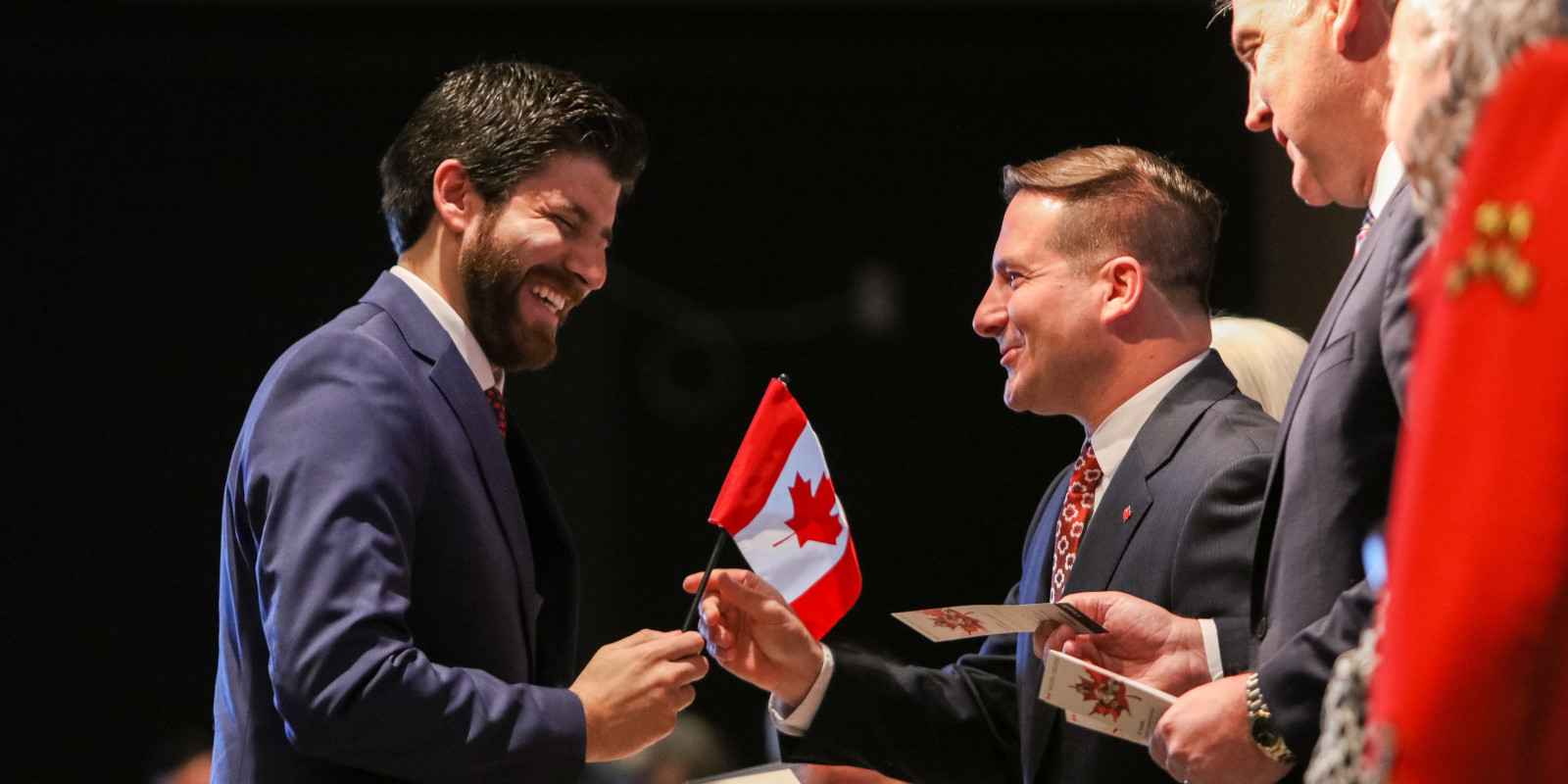Any sweet-toothed Canadians looking for some patriotic treats for this year’s Canada Day celebration could do worse than the Go Canada Go bars sold by Nova Scotia’s Peace By Chocolate.
The bar sports a Canada flag wrapper with the slogan “Go Canada Go” emblazoned on the top. Inside the milk chocolate treat is a maple cream filling. Even the most red-blooded, flag-waving, hockey-watching Canadian might think it’s a little over the top.
But for Tareq Hadhad, a Syrian refugee who fled his country’s civil war to Antigonish, Nova Scotia, and quickly set up a family-run chocolate shop, the message perfectly reflects his own feelings.
“Whenever someone eats one of our chocolates, I think they’ll become proud Canadians to think how great this country is that opens the doors for us,” said Hadhad, on Thursday’s episode of the Hub Dialogues.
Hadhad’s story of going from refugee to massively successful chocolatier has been turned into a feature film, entitled Peace By Chocolate, which premiered last year in Canada after appearing at the Tribeca Film Festival in New York.
To say the Hadhad family’s life has been cinematically harrowing could be an understatement. In 2010, Hadhad’s father was making ambitious plans for his Syria-based chocolate company and, by 2012, the company’s factory was destroyed by an airstrike. His extended family was soon scattered around the globe, in 26 different countries, as they joined the millions of refugees fleeing the war.
“The whole experience of becoming a refugee was (that) we did not know what tomorrow is going to bring us,” said Hadhad. “We did not know what the future is holding for our family, and we did not know if we will get that chance to immigrate, or if we can go back to our homeland. There was so much uncertainty, so much adversity.”
Hadhad arrived in Antigonish in 2016 and agonized over whether he should pursue a medical career, before eventually deciding to reopen the family’s chocolate business. Peace By Chocolate has been a smashing success, shipping products globally, opening a new location in Halifax, and raising money for causes close to the family’s heart.
In 2018, when Peace By Chocolate was experiencing its first, modest success the company donated some proceeds to the Canadian Red Cross’s wildfire relief efforts in Fort McMurray. Hadhad also sees the company’s job creation in Nova Scotia as another way to give back to his new home and to counter the idea that refugees won’t contribute to the community.
“That’s why the movie, for example, has conflict within the family and conflict within the community, and how people, sometimes, have fears against newcomers, and then all the fears dissolve after newcomers prove themselves that they are here as givers and not takers,” said Hadhad.
Hadhad and his family particularly wanted to give back to the small community in Antigonish that had sponsored them as refugees through the Private Sponsorship of Refugees program.
That PSR was a pioneering innovation when it was created in 1979 in response to the arrival of Vietnamese refugees to Canada. The program proved to be a remarkable success and, after only six months in existence, 5,457 groups across Canada had applied to sponsor refugees. For every privately sponsored refugee under the PSR program, the government matches this by sponsoring a refugee themselves. The program has been pivotal in giving Canada a refugee program that is internationally recognized as fair and generous.
Hadhad said that before he arrived in Canada he knew it as a welcoming country that had taken in refugees from Vietnam, Iraq, and Rwanda, among others. Hadhad said he knew Canada as a country of immigrants, dedicated to continuously building the country in the same way that immigrants before them had.
“I think we were very similar to a lot of former immigrants in that we believed we have to be laser-focused on our mission. We have to be laser-focused on building a Canada that is better for our kids, leaving this country better for our kids and grandkids than we found it,” said Hadhad.
In building a better country, Hadhad believes there are few better ways to do it than providing a steady supply of chocolate, whether it’s a patriotic chocolate bar or not.
“Everyone who eats chocolate would be happy. No one who eats chocolate will ever be sad,” said Hadhad.
“We wanted to do something remarkable, something unique, and that’s when he realized that chocolate is the best path. It was the product that makes everyone happy.”
Recommended for You

Laura David: Red pill, blue pill: Google has made its opening salvo in the AI-news war. What’s Canadian media’s next move?

The Notebook by Theo Argitis: Mark Carney’s first major tests

The Weekly Wrap: Trudeau left Canada in terrible fiscal shape—and now Carney’s on clean-up duty

Ben Woodfinden: Lament for an ‘elbows up’ nation



